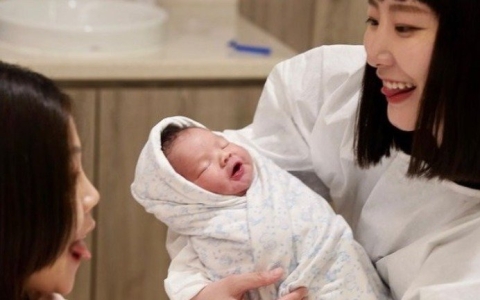Thanks Taiwan media for reporting: U.S. surrogacy attracts Taiwan's single/LGBT community to seek parenthood across the sea
Media reports indicate that due to current legal regulations in Taiwan, only heterosexual couples can resort to surrogacy for parenthood, leading to the possibility of single women, women with uterine damage, and the LGBT community having to seek reproductive options overseas. Additionally, surrogacy in Taiwan is a subject of much controversy; opponents fear potential ethical and objectification issues regarding women, while supporters argue for openness and alignment with international trends. As the most open country for surrogacy and with the finest techniques in assisted reproductive technology globally, the United States serves as a prime example of successfully combating declining birth rates, from more lenient policies on assisted reproduction and surrogacy that contribute to increased usage of frozen eggs, to supporting the reproductive rights of single and LGBTQ families.
The plight of frozen eggs and journeys for parenthood abroad
Most Asian countries including Taiwan, Japan, and Singapore stipulate that only infertile couples in a marital relationship with a wife capable of producing offspring can use assisted reproductive technologies, leaving single women, women with uterine damage, and same-sex families feeling helpless. According to data from the Sendbird Reproductive Center in Taiwan, the number of women freezing their eggs at the center has increased sevenfold in five years. However, due to regulatory restrictions, only 4.5% of these eggs are subsequently used, leaving many stored eggs unused. Research from National Taiwan University Hospital also shows that the utilization rate of thawed frozen eggs in the hospital's obstetrics and gynecology department is only 8.4%, lower compared to Spain's 12% and Sweden's 15%, while the United States, with the most lenient fertility policies, stands at 38%.
Despite Taiwan being the most liberal in terms of fertility policies in Asia and legally recognizing same-sex marriage, the actual utilization rate of frozen eggs remains low under legal and societal constraints. The program also detailed various concerns related to surrogacy, criteria for selecting surrogate mothers, and associated costs, demonstrating the potential of surrogacy in addressing infertility issues and declining birth rates. Jenny Tang, CEO, and David Harari, Medical Director of the RSMC Medical Group, interviewed in the program, emphasized that all of the baby's genes come from the intended parents who create the embryo, and surrogate mothers do not affect the baby's genetics in any way or alter their genetic makeup. Therefore, the baby's appearance, personality, intelligence, and all traits are derived from the intended parents until birth, not from the surrogate mother who carries the baby. Additionally, children born through surrogacy in the United States are entitled to citizenship, ensuring that intended parents are unaffected when traveling to the U.S., and parents can apply for family reunification once the child reaches the age of 21, regardless of whether they have resided overseas since birth.
The Pros and Cons of Surrogacy
Surrogacy has sparked widespread debate in Taiwan. Dr. Lee Mao-Sheng, the director of the Taiwan Mao-Sheng Hospital, believes that opening relevant regulations can not only increase the number of newborns but also bring hope to families in need. However, some women's groups are concerned that surrogacy may harm the rights of surrogate mothers and fear it could objectify women and lead to ethical controversies. Overall, Taiwan faces multiple challenges in artificial reproduction, including legal, ethical, and social consensus issues. Future development requires more discussions and societal consensus to find the most suitable solutions for the current situation. The United States' reproductive strategy is not restrictive and is not tied to marital status, enabling single individuals who are often overlooked by Asian countries' fertility rates, as well as LGBTQ individuals, to pursue parenthood through egg donation surrogacy or sperm donation IVF in the United States. In recent years, many single individuals have sought our assistance and successfully given birth to offspring.
Extending Reading: Can LGBTQ families undergo IVF treatment?
Restrictions in various countries have led more and more single men and women and LGBTQ communities who are gradually missing their prime fertility period to seek fertility options, especially in the United States. In addition to surrogacy, many single women or lesbian couples also undergo sperm donation IVF treatment in the United States to fulfill their parenting plans. The well-known post-marriage YouTuber Rabbit & Wolf sought assistance from the RSMC Reproductive Medical Center in the United States due to restrictions in Taiwan's artificial reproduction law. Frozen eggs in 2021, implantation in 2022, and childbirth in 2023. Everything went smoothly. Thanks to Rabbit & Wolf's generous sharing of their experience, from freezing eggs to choosing sperm donors and implantation, they have brought courage to many same-sex couples who want to take the first step.
Extending Reading: Congratulations to Taiwanese Lesbian couple YouTuber on the successful completion of their US IVF journey!

DR. DAVID HARARI
President and Chief Medical Officer
As a board-certified OB/GYN since 1986, Dr. Harari has treated many infertile couples over his career, utilizing surgical technologies such as robotics and minimally invasive procedures for the treatment of endometriosis, fibroids, and other gynecologic conditions. He has been instrumental in helping thousands of couples build the family of their dreams through both IVF and surrogacy.



